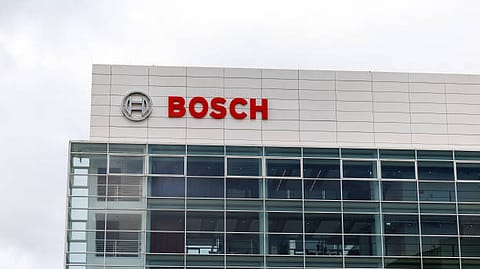Rising demand for feature-loaded cars to benefit Bosch: MD Guruprasad Mudlapur
Bosch is looking to replicate its success with EV components in China in India, says Bosch MD Guruprasad Mudlapur.

Indian car buyers’ increasing preference for feature-loaded trims with advanced driving assistance systems (ADAS) is expected to benefit German auto component giant Bosch Ltd, according to Guruprasad Mudlapur, president of the Bosch Group in India and managing director of Bosch.
“The premium version of every new car model seems to have some level of ADAS. These are becoming default features… If the content per vehicle increases, that’s a big benefit for us,” Mudlapur tells Fortune India.
The penetration of ADAS is getting more democratised as carmakers introduce these features even in smaller segment cars.
“Level-2 ADAS capability is becoming common within the Indian passenger car market. Going forward, we expect significant growth in penetration of ADAS in India,” says Sandeep Nelamangala, joint managing director of Bosch and executive vice president of mobility solutions at Bosch India.
“Over the last couple of years, we have seen a significant increase in demand for ADAS components for instance radars, sensors etc. Nelamangala expects ADAS-equipped car sales to register double-digit CAGR (compounded annual growth rate) from 2025 to 2030.
India contributes 5-6% to the global mobility business of Bosch. A majority of this currently comes from powertrain solutions. It also supplies power electronics, braking and mobility software solutions. However, with the growing trend of feature-rich vehicles, India’s contribution to the overall global mobility business is expected to jump to double digits by 2030, says Nelamangala. India’s passenger vehicle market is expected to grow to 7 million cars by the turn of the decade from 4 million currently.
Bosch, which has been a critical part of mobility ecosystem in India for over a century, wants to shape the new era of mobility for India, says Bosch MD Mudlapur. 80% of the company’s revenue in India comes from the mobility business while the rest comes from appliances and power tools.
Recommended Stories
Even as Bosch focuses on sustaining its market share in internal-combustion engine vehicles, the auto parts maker is looking to become a dominant player in components for EVs. “Bosch over the past decade has globally invested over ₹10 billion into technologies around electrification. In China, the default major market for electrification, we are the largest Tier-1 supplier. We want to replicate that success in India. We have a good technology base for electrification globally,” says Mudlapur. “The entire portfolio of Bosch for electrification in two-wheelers, passenger cars and commercial vehicles is on offer for the Indian market, including some custom developments for India."
On localisation, the Bosch MD says up to 85% of what the company produces in older technologies is localised. “In the case of EVs, when we start we will maybe import a little bit but very quickly due to PLI we will move towards localisation,” says Mudlapur. “In power electronics, we will start localising components from Day 1.”
Bosch has already received approval under the production-linked incentive (PLI) scheme for auto components such as electric motors for two-wheelers.
On software glitch issues with electric vehicles, Mudlapur says electrical/electronic (E/E) architecture is more centralised in EVs. “Earlier, cars had more distributed architecture where there were many electronic control units. If these are not handled very well, glitches may happen as these are early days of software in a car,” he says.
(INR CR)
The Bosch MD, however, adds that software-defined vehicles (SDVs) can be fixed on the run. “When you think of a recall of cars, earlier you had to bring it back to the plant which would cost millions of dollars, these days a recall could just be over the air, you may not even notice it,” he says.
The power solutions business, which constitutes 71% of the overall automotive product sales of Bosch in India, de-grew by 1.8% year-on-year for the quarter ended December 31, 2024, on account of contraction in the heavy commercial vehicles (HCV) segment due to a slowdown in economic activity. When asked about muted growth in commercial vehicle sales in 2024, Nelamangala says, “We have been through this cycle of seasonality."